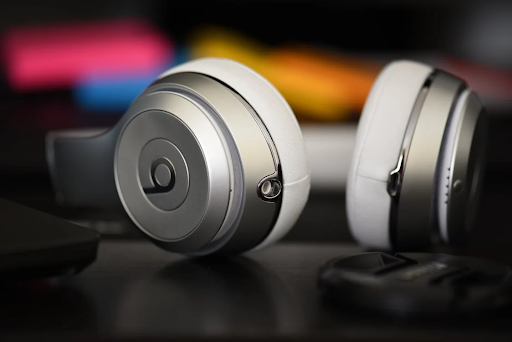In today’s fast-paced world, headphones have become an essential accessory for many people, whether they’re commuting, working out, or simply relaxing at home. With advancements in technology, there’s now a plethora of options available, including wireless and wired headphones.
But when it comes to choosing between the two, which is better? Let’s dive into the comparison and explore the pros and cons of each.
THE CASE FOR WIRELESS HEADPHONES
Wireless headphones, such as the popular Bose wireless headphones, offer the freedom of movement that wired headphones simply can’t match. With no cords to tether you to your device, you’re free to move around without any restrictions. This makes wireless headphones ideal for workouts, travel, and other activities where you need to stay mobile.
On the other hand, wired headphones, like the renowned Sony earphones, have their own set of advantages. One of the primary benefits of wired headphones is their reliability.
Since they’re directly connected to your device, you don’t have to worry about issues like interference or battery life. Plus, wired headphones typically deliver higher audio quality compared to their wireless counterparts, making them a favorite among audiophiles.
In contrast to their wired counterparts, wireless headphones utilize advanced technologies like Bluetooth to transmit audio data wirelessly. While they may come at a higher price point, wireless headphones offer unparalleled convenience and versatility.
ADVANTAGES OF WIRELESS HEADPHONES
Freedom of Movement: Wireless headphones provide unparalleled freedom of movement, thanks to their cord-free design. Whether you’re working out at the gym or navigating crowded city streets, you can enjoy your favorite music without being tethered to your device.
Universal Compatibility: Unlike wired headphones, which rely on physical connections, wireless models like the GOVO GOKIXX 900 utilize Bluetooth 5.0 technology for seamless connectivity. This enables them to pair with a wide range of devices, including smartphones, laptops, and tablets, for hassle-free audio streaming.
DISADVANTAGES OF WIRELESS HEADPHONES
Dependency on Battery: While wireless headphones offer convenience, they require regular charging to maintain functionality. Despite advancements in battery life, users must periodically recharge their headphones to avoid interruptions in playback.
Higher Cost: The convenience and technology packed into wireless headphones often come at a premium price. Additionally, users may incur additional expenses for accessories like Bluetooth transmitters to ensure compatibility with certain devices.
When it comes to convenience, wireless headphones often come out on top. With no cords to untangle or worry about, they’re easy to throw in your bag and take on the go. Many wireless headphones also feature advanced features like noise cancellation and touch controls, adding to their appeal.
However, the convenience of wireless headphones does come with some trade-offs. Battery life is a significant consideration, as wireless headphones need to be charged regularly to stay functional. Additionally, there’s always the risk of connectivity issues or signal dropouts, especially in crowded environments with lots of wireless interference.
THE CASE FOR WIRED HEADPHONES
Wired headphones function akin to miniature speakers, delivering sound directly from the device through 3mm jacks and plugs. Despite being considered the more traditional choice, wired headphones offer several distinct advantages
ADVANTAGES OF WIRED HEADPHONES
Sound Quality:
Modern wired headphones, exemplified by models like the sony earphones boast impressive audio fidelity. Featuring advanced chipsets and 12mm drivers, they deliver rich, deep bass and sonic clarity, ensuring an immersive listening experience.
Ease of Repair and Affordability:
Unlike their wireless counterparts, wired headphones are generally more budget-friendly. Moreover, they are easier to repair, with simple fixes for issues like short or frayed wires. Many wired headphones also come with a generous warranty, providing added peace of mind for consumers.
Uninterrupted Playback:
With wired headphones, there’s no need to worry about battery life or charging. Operating solely on line-level audio signals, they offer uninterrupted playback for extended listening sessions, making them ideal companions for lengthy commutes or workdays.
DISADVANTAGES OF WIRED HEADPHONES
Limited Mobility:
One of the primary drawbacks of wired headphones is their tethered nature, which restricts movement and can lead to tangled wires. Users may find themselves constrained by the length of the cable, limiting their range of motion.
Vulnerability to Damage:
The thin, fragile wires of wired headphones are susceptible to damage from accidental tugs or pulls. This fragility can result in short circuits or complete malfunction, necessitating careful handling to prevent premature wear and tear.
On the other hand, wired headphones offer a plug-and-play experience that’s hard to beat. Simply plug them into your device, and you’re good to go – no pairing or charging required. Plus, since they’re not reliant on battery power, you never have to worry about them running out of juice at an inconvenient time.
Another factor to consider is compatibility. While most modern devices support both wireless and wired headphones, older devices may only have a headphone jack, making wired headphones the only option. Additionally, some audiophiles argue that wired headphones provide a more reliable connection and better audio quality, especially when it comes to high-resolution audio formats.
In terms of price, both wireless and wired headphones come in a range of price points to suit every budget. While wireless headphones tend to be more expensive upfront due to the technology involved, they may end up being more cost-effective in the long run if you factor in the cost of replacing wired headphones due to wear and tear.
Conclusion
Ultimately, the decision between wireless and wired headphones comes down to personal preference and how you plan to use them. If you value freedom of movement and convenience, wireless headphones may be the way to go.
On the other hand, if you prioritize reliability and audio quality, wired headphones might be the better choice. Whichever you choose, both Bose wireless headphones and Sony earphones offer top-notch options to suit your needs.

